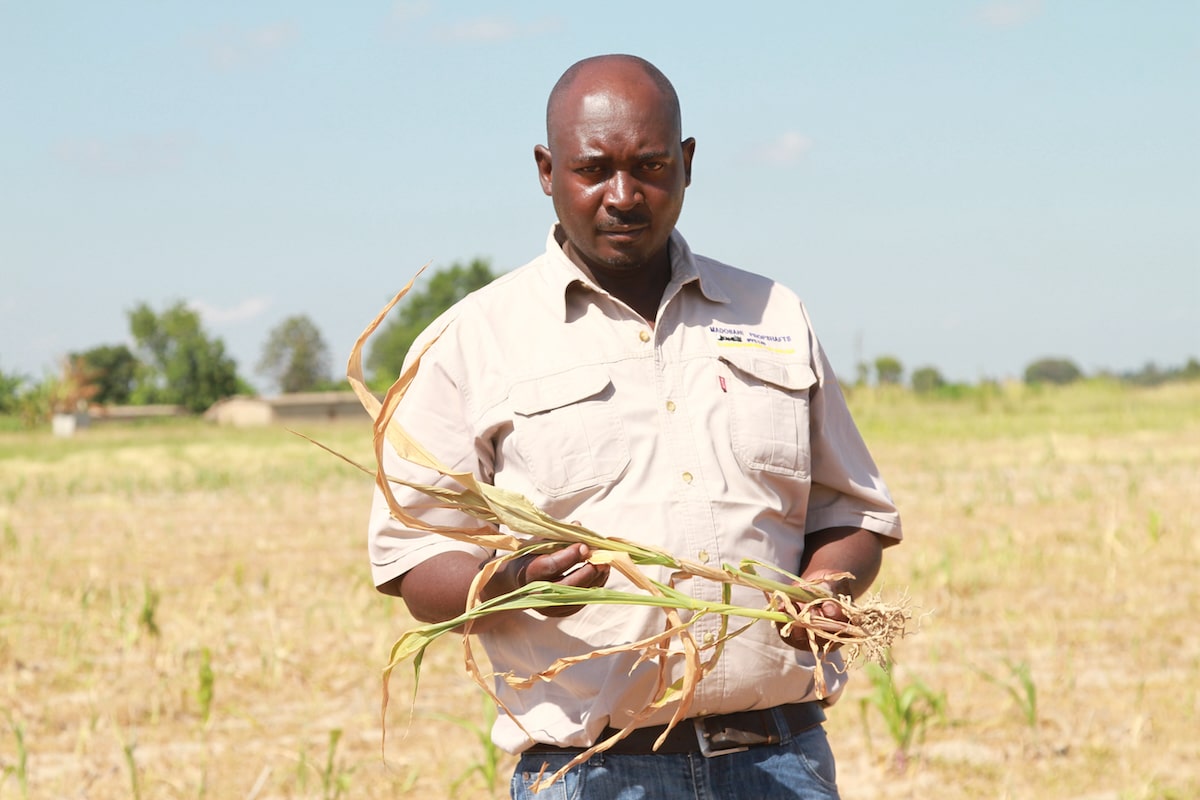Ecowatch
Zimbabwe Declares ‘State of Disaster’ as Drought Threatens Food Supply

A farmer holds a maize plant wilting from the drought at his farm in Beatrice, about 25 miles southwest of Harare, Zimbabwe, on Feb. 26, 2024. Tafara Mugwara / Xinhua via Getty Images

Why you can trust us
Founded in 2005 as an Ohio-based environmental newspaper, EcoWatch is a digital platform dedicated to publishing quality, science-based content on environmental issues, causes, and solutions.
Zimbabwe’s President Emmerson Mnangagwa has declared the country’s ongoing drought a national disaster, with more than $2 billion needed to feed millions.
Malawi and Zambia made similar announcements earlier this year, as an El Niño-fueled drought thrust southern Africa into a humanitarian emergency.
Mnangagwa told reporters in Harare that this year more than 2.7 million in Zimbabwe would face hunger, reported Reuters.
“No Zimbabwean must succumb or die from hunger,” Mnangagwa said in a press conference, as AFP reported. “To that end, I do hereby declare a nationwide State of Disaster, due to the El Niño-induced drought.”
The declaration frees up more resources to combat the calamity.
Zimbabwe relies heavily on hydroelectric power, and electricity production has also been impacted by the drought.
Mnangagwa said the grain harvest this season was predicted to produce a little more than half the cereals necessary to feed the country.
“[M]ore than 80% of our country received below normal rainfall,” Mnangagwa said, as reported by The Associated Press. The nation’s biggest priority, the president said, is “securing food for all Zimbabweans.”
Mnangagwa asked for humanitarian aid from local faith organizations and businesses, as well as the United Nations.
“Preliminary assessments show that Zimbabwe requires in excess of $2 billion towards various interventions we envisage in our national response,” Mnangagwa said, as Reuters reported.
Mnangagwa added that increasing food reserves by prioritizing winter crops — as well as importing grains — would be a priority for the government.
“We expect 868 273 metric tonnes from this season’s harvest. Hence, our nation faces a food cereal deficit of nearly 680 000 metric tonnes of grain. This deficit will be bridged by imports,” Mnangagwa said, as reported by Africanews.
Since November, most of Zimbabwe’s provinces have been experiencing crop failure.
The World Food Programme and other agencies have called the situation “dire,” requesting that donors give more assistance.
Angola, Madagascar, Mozambique and Botswana were also facing extreme drought conditions.
The disruption of wind patterns and warmer ocean surface temperatures associated with El Niño have led to record heat, drought and wildfires across the globe.
The current El Niño climate pattern began in the middle of last year and typically affects global temperatures for roughly one year, AFP reported.
The World Meteorological Organization has said that the current El Niño — one of the five most powerful ever recorded — will continue to impact the climate through greenhouse gases trapping heat in the atmosphere.
Subscribe to get exclusive updates in our daily newsletter!
By signing up, you agree to the Terms of Use and Privacy Policy & to receive electronic communications from EcoWatch Media Group, which may include marketing promotions, advertisements and sponsored content.
Source
Disclaimer: No copyright infringement intended. All rights and credits reserved to respective owner(s).












